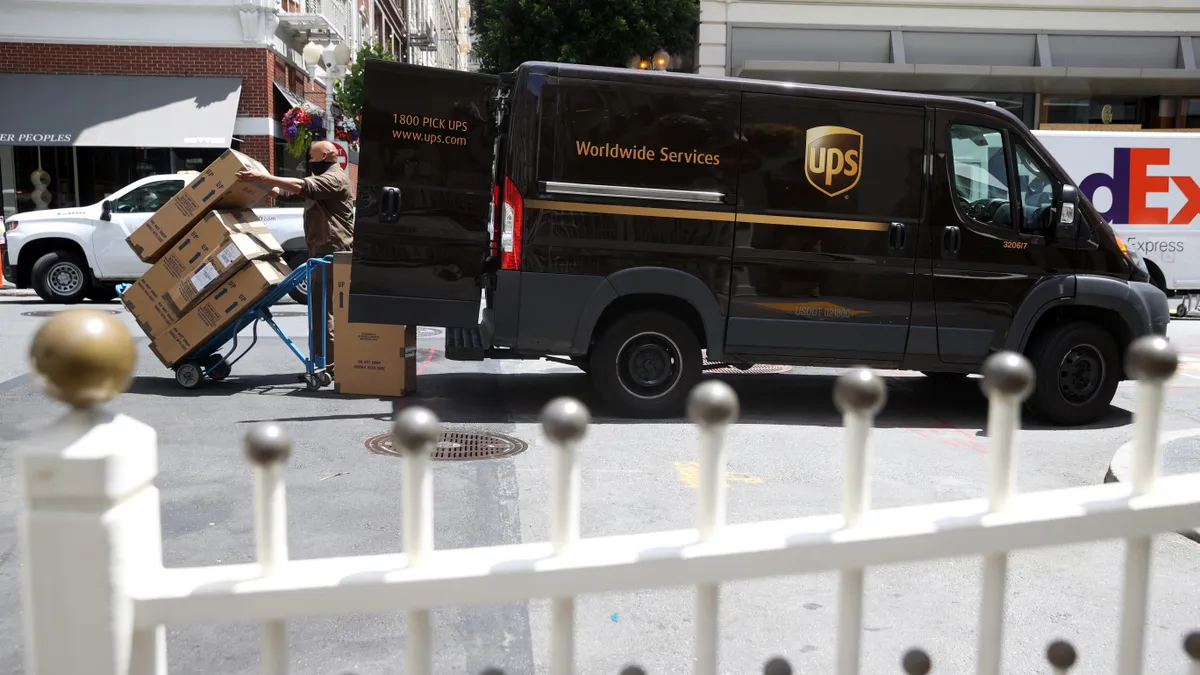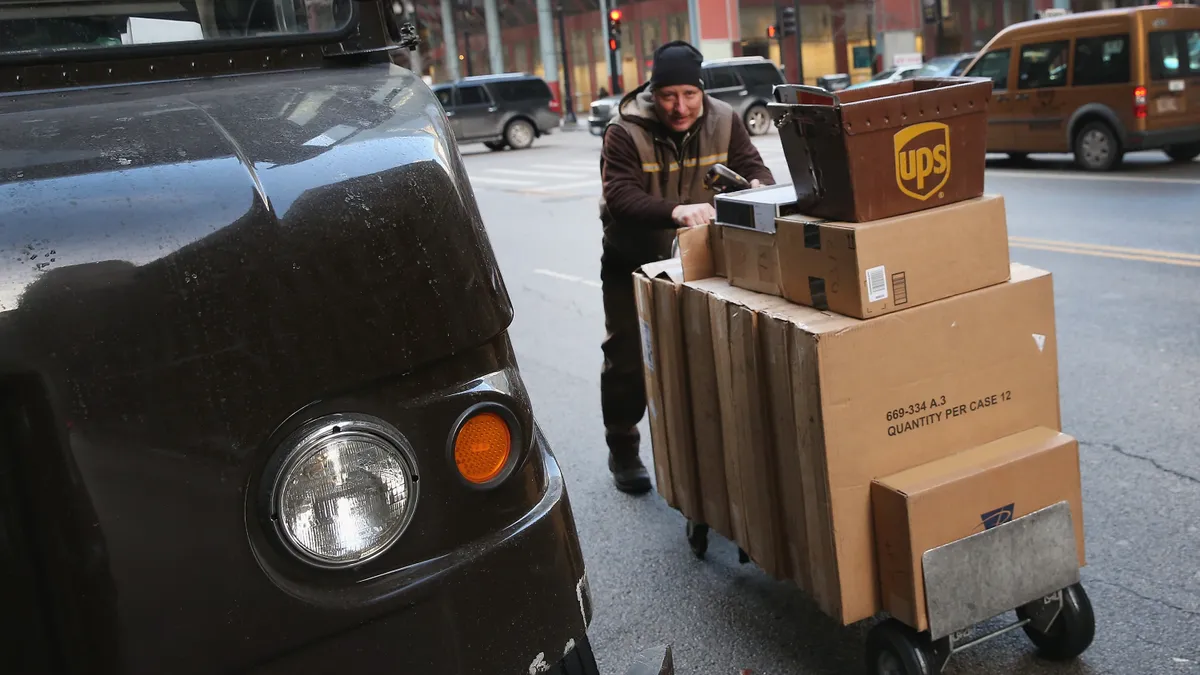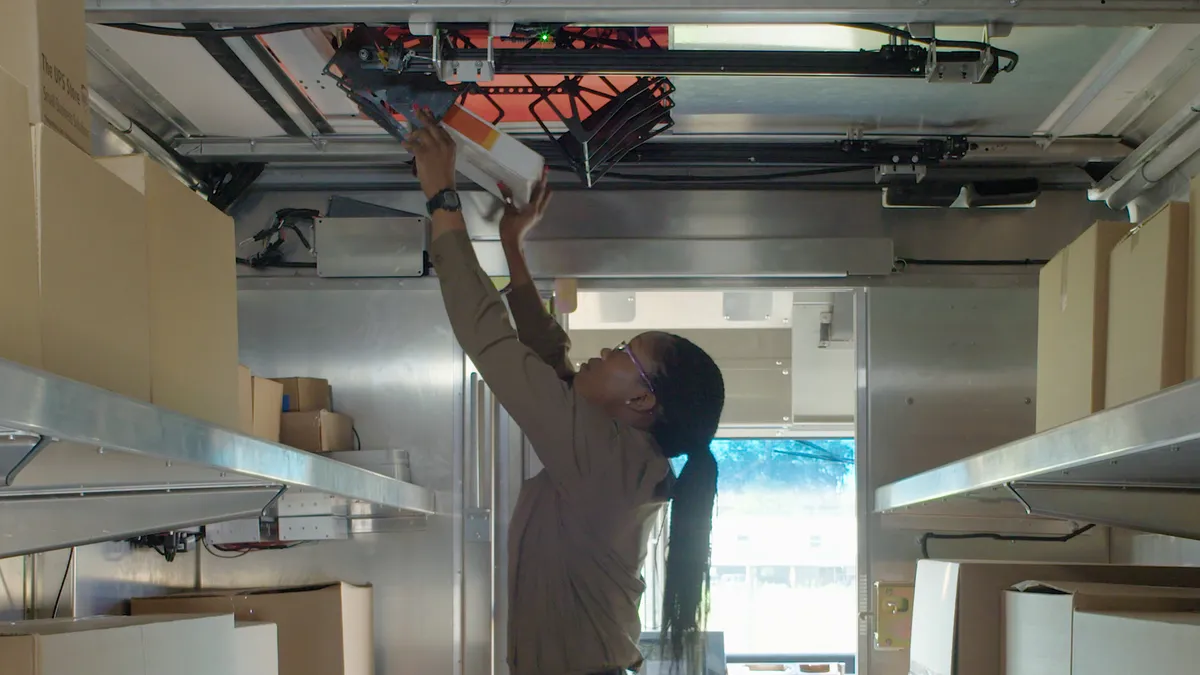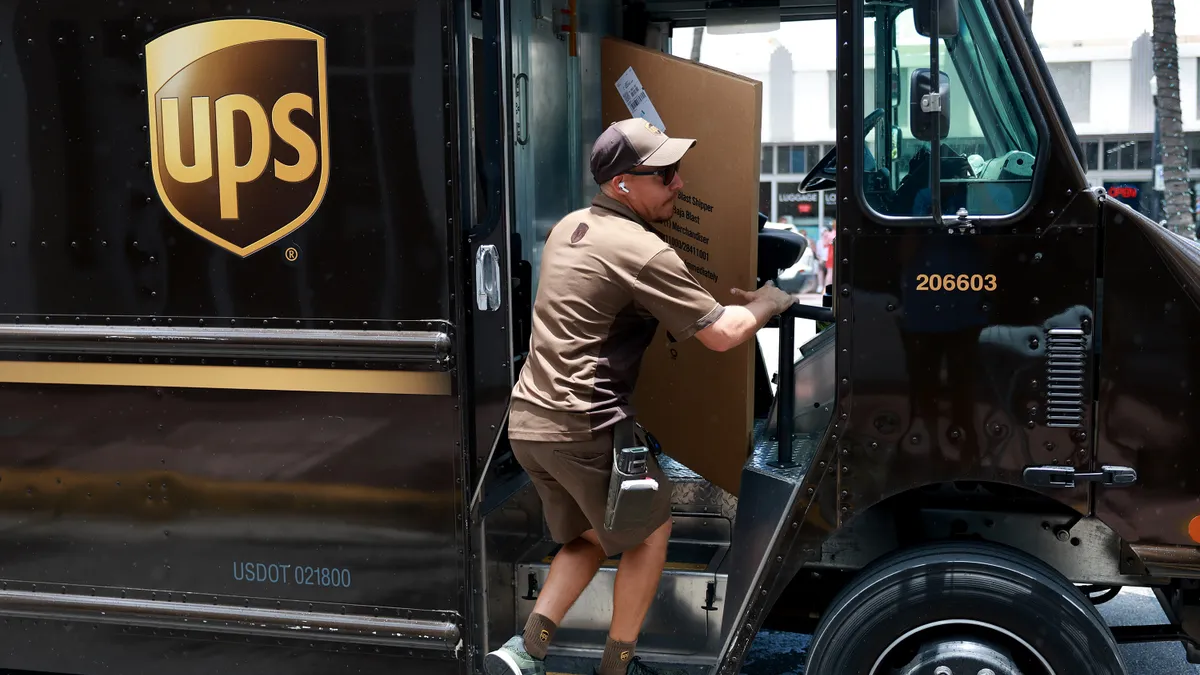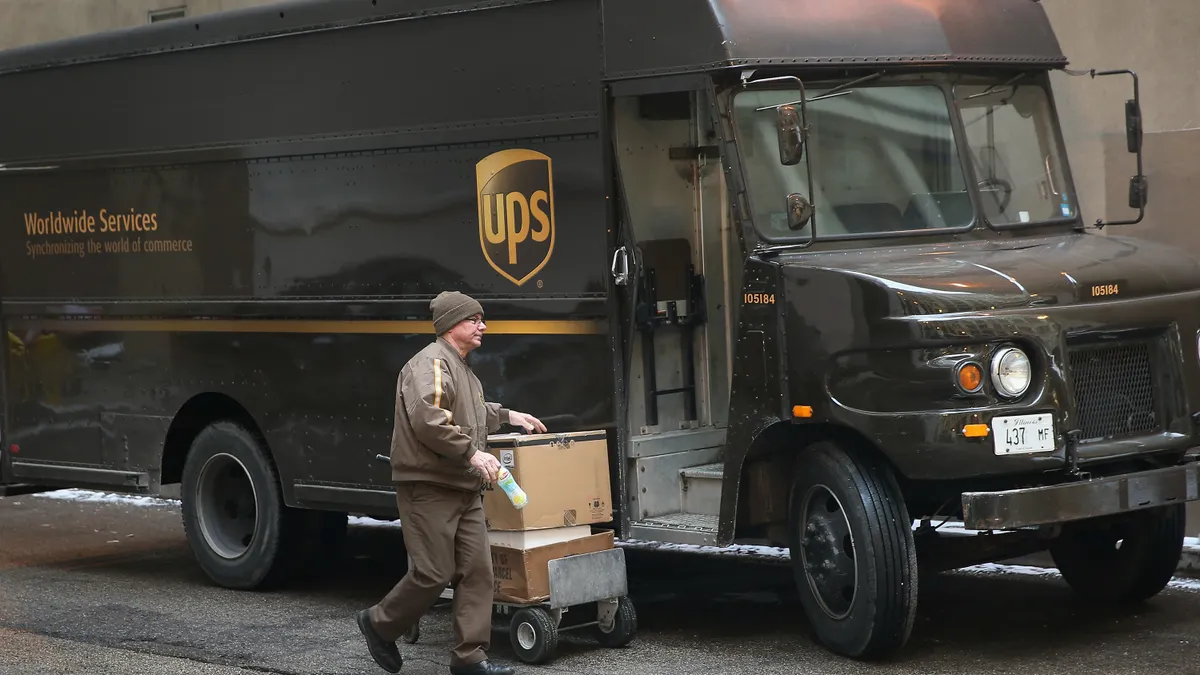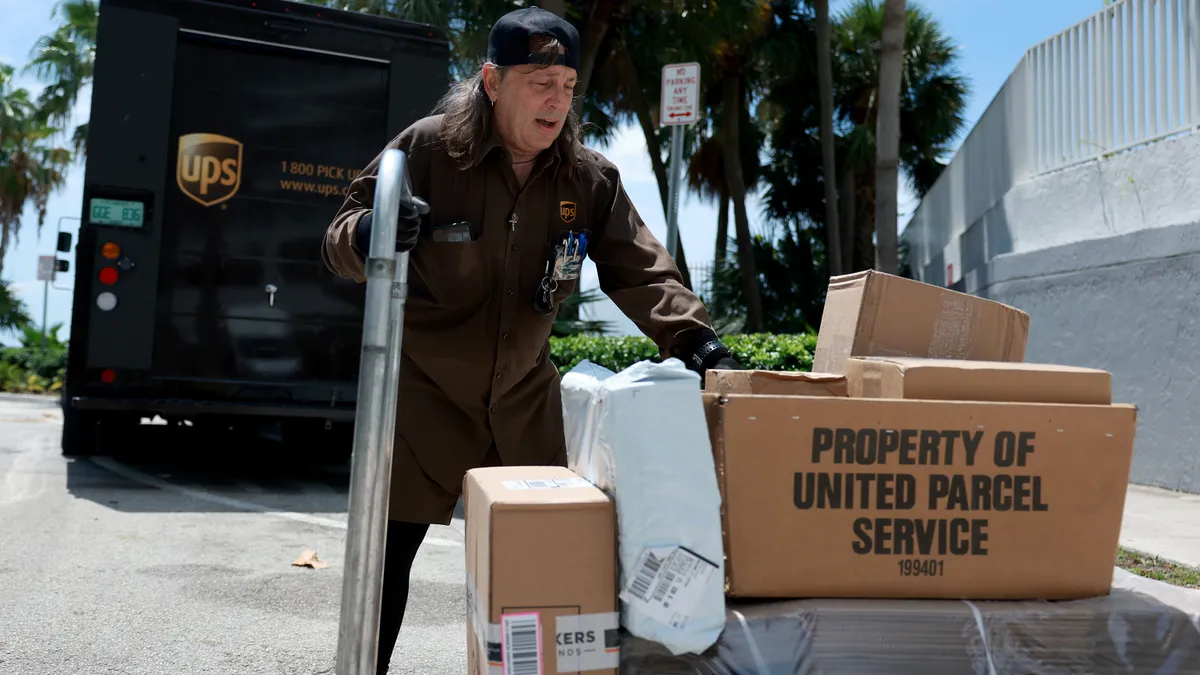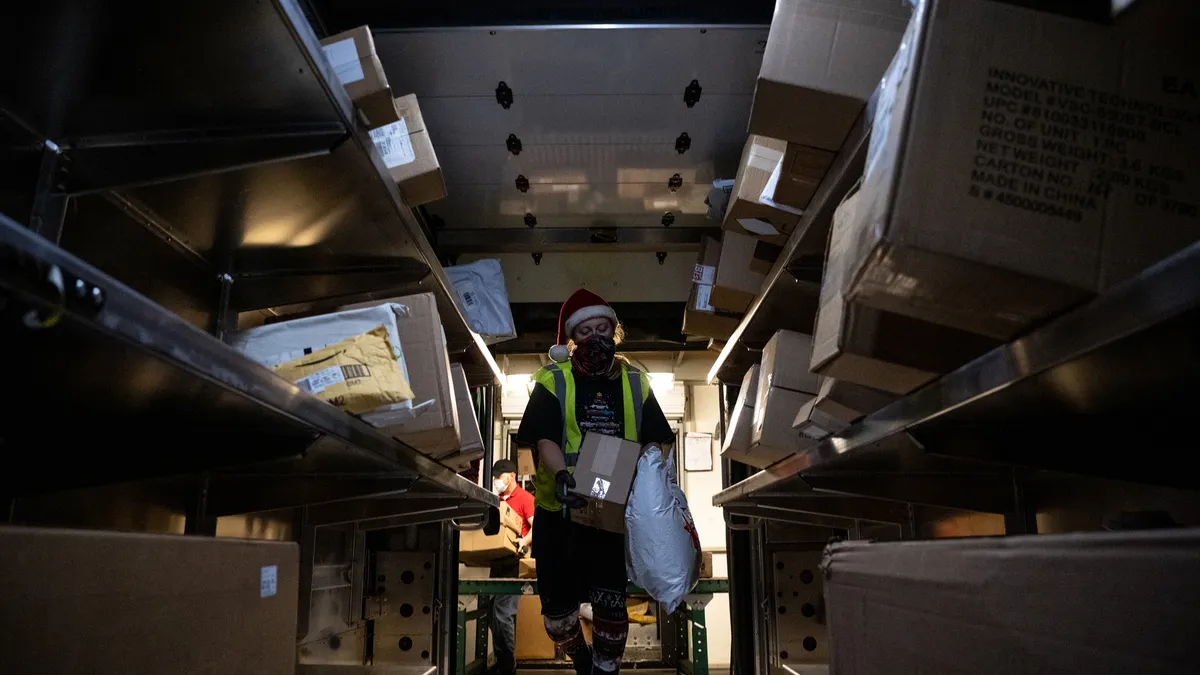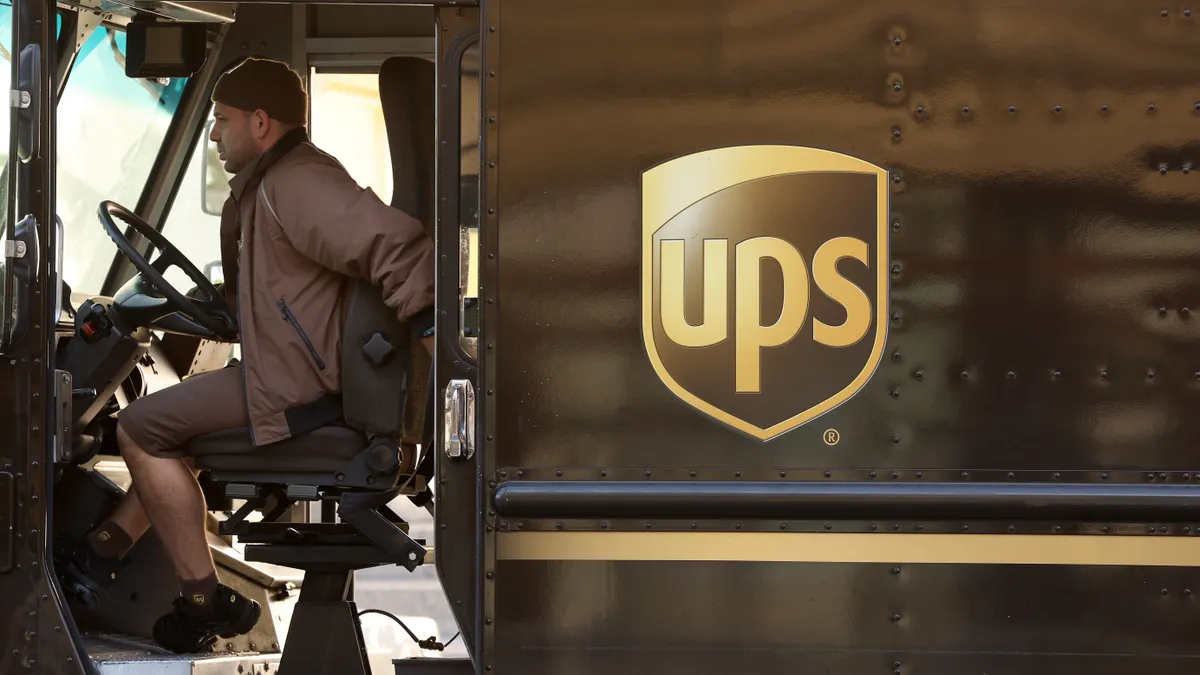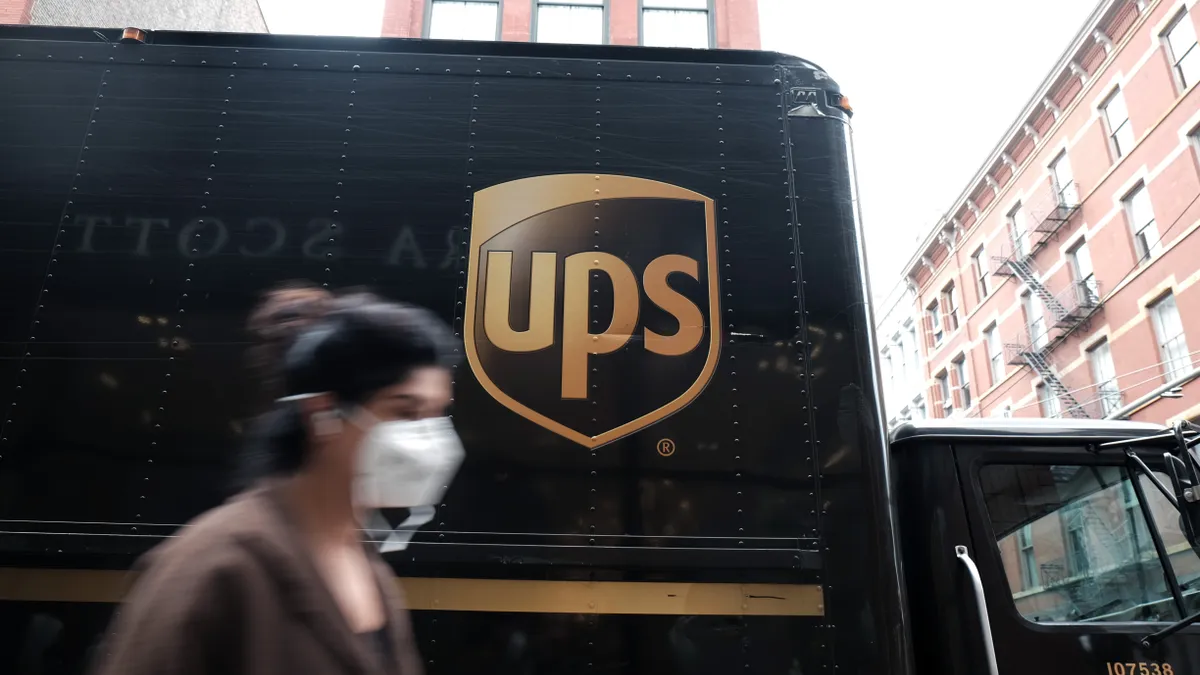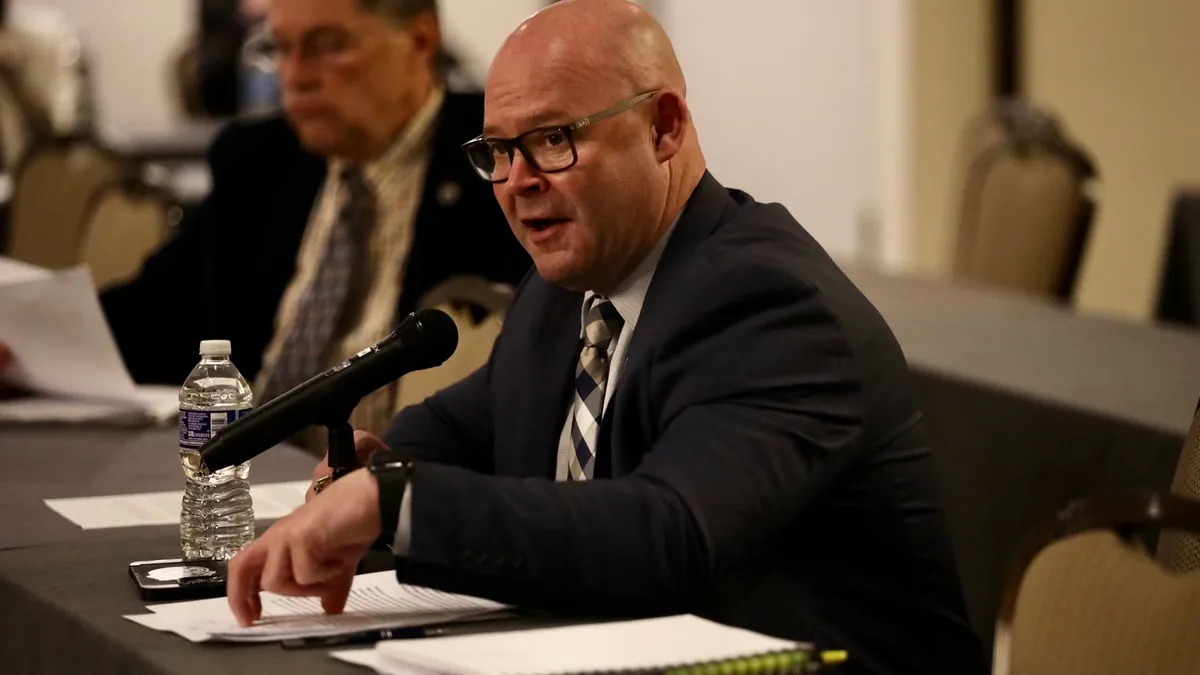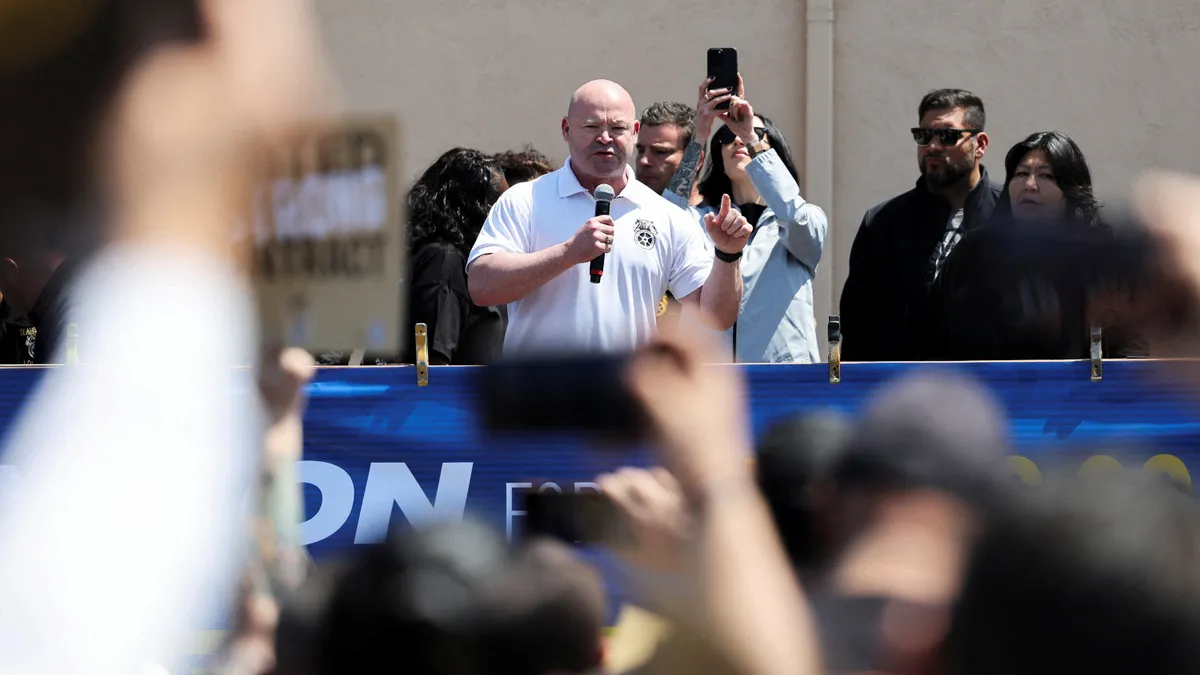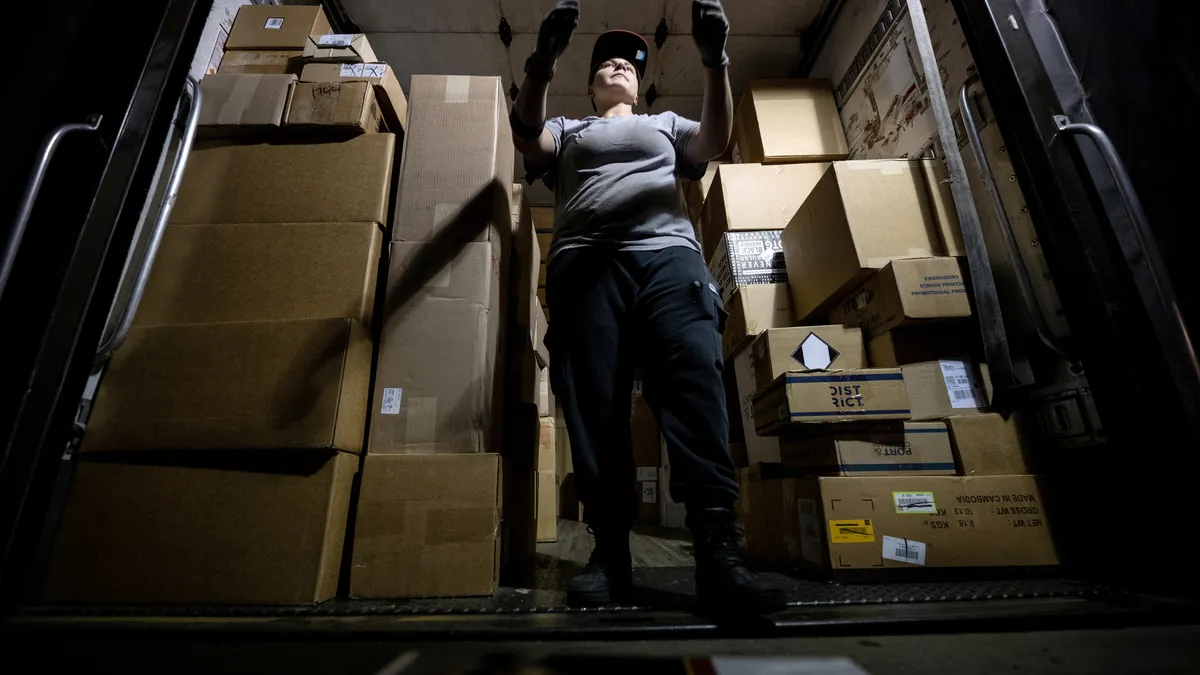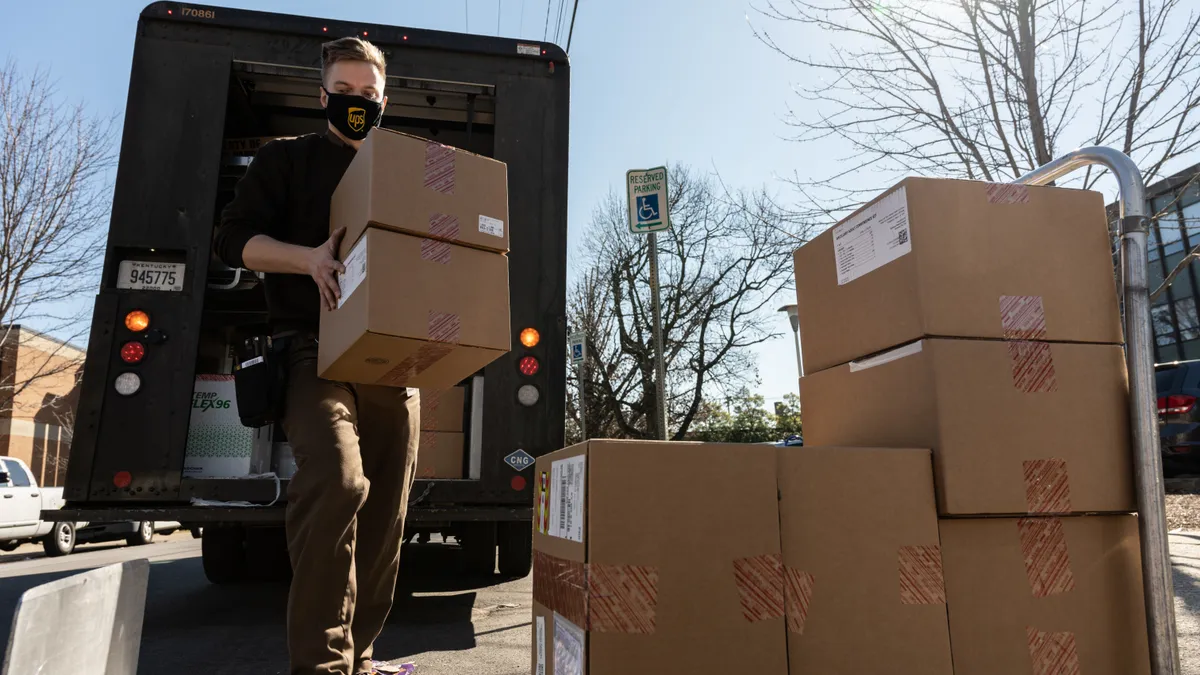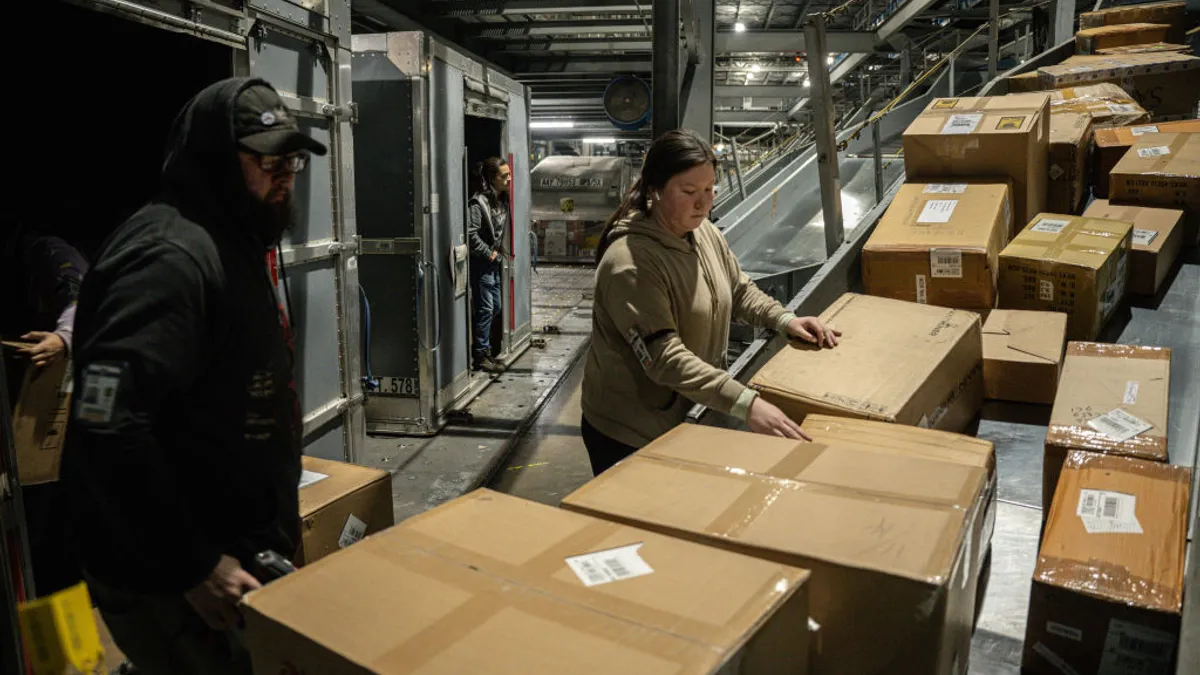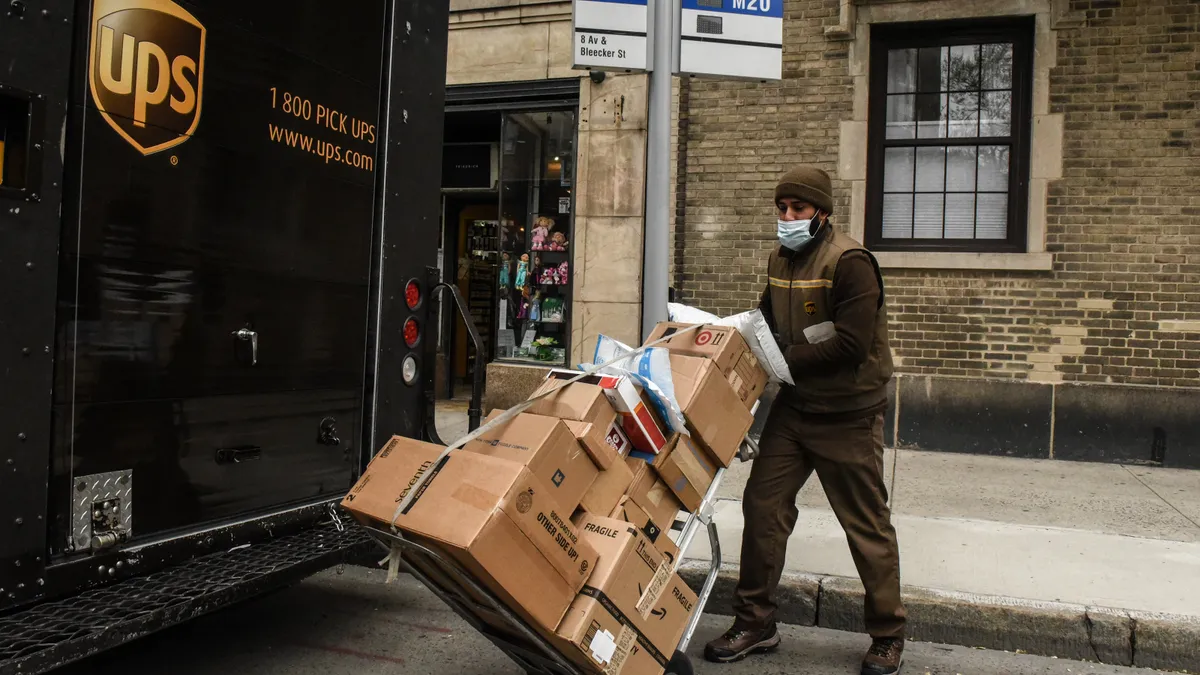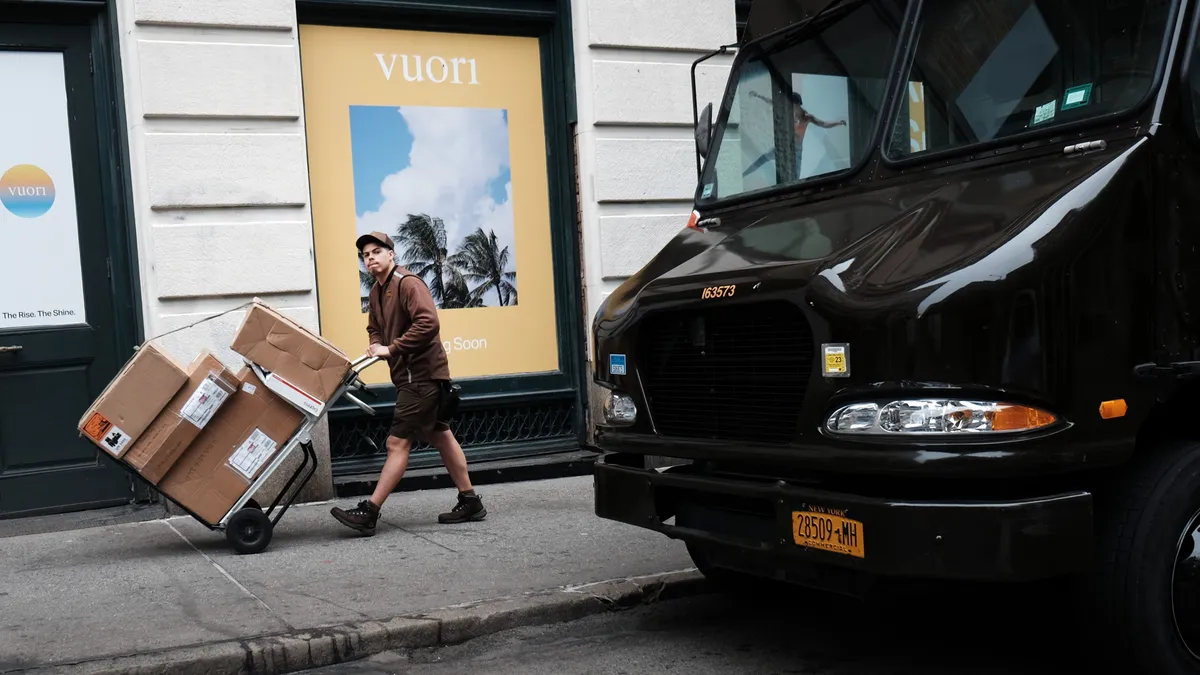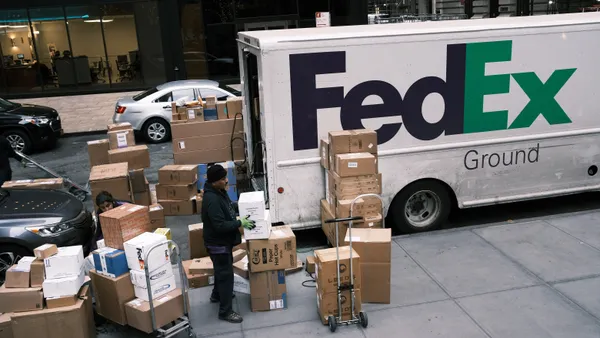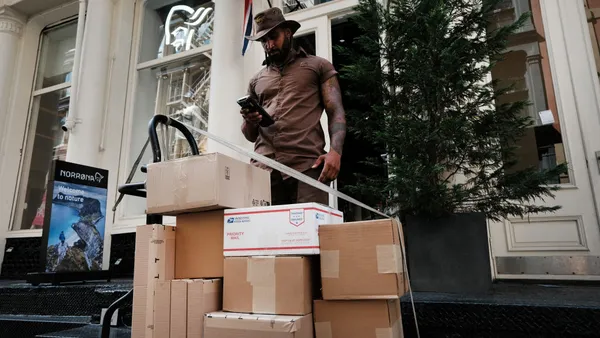Despite a delayed start, UPS and the International Brotherhood of Teamsters have made significant progress in their ongoing negotiations for a new national contract.
The delivery giant and the union representing roughly 330,000 of its employees have reached 55 tentative agreements addressing a variety of topics within the contract, Teamsters General President Sean O’Brien said in a Wednesday webinar updating union members on negotiations.
"After 20 full days of bargaining, we've been very aggressive," O'Brien said. "We've never done this process as efficiently as we have in the last 20 days."
Now, the two sides must come to terms on topics the union has been particularly outspoken about: wages and benefits. It’s off to a rocky start.
O'Brien said the Teamsters are "demanding big raises" from UPS across employee classifications, but the two sides are apparently far apart on specifics. The union blasted UPS’ counteroffer to its proposal on economic items Thursday, calling it “appalling” and saying negotiators won’t meet with the company again until a “realistic and respectful” offer is proposed.
There are less than 39 days for negotiators to reach an agreement on pay and other topics before the July 31 expiration of the current national contract. UPS has expressed confidence that it will reach a deal prior to that date.
The shippers relying on the company for deliveries hope that will be the case — the Teamsters have vowed to strike if a deal isn't reached by then, which would cause immense disruptions in the company's network.
"The Teamsters are playing hardball," ShipScience founder and CEO Anthony Robinson told Supply Chain Dive earlier this year. "I think they know that they have a lot of leverage at this point, especially given the amount of inflation and the inflationary impact to wages."
Deals reached on all non-economic items
UPS and the Teamsters reached tentative agreements on all non-economic issues on Tuesday.
Some of the larger agreements include having company drivers handle more SurePost deliveries, giving the Teamsters a larger influence over technology changes in the company's network and equipping new UPS vehicles with in-cab air conditioning starting in 2024.
"Where possible, new vehicles will be allocated to the hottest parts of the country first," UPS said of the air conditioning agreement.
O'Brien said these deals, which are subject to ratification alongside the next national contract, are all favorable to union members.
Although union leadership has been happy with the agreements reached so far, Teamsters-represented UPS employees voted in favor of authorizing a strike if needed earlier this month. The approval, which UPS called a typical step in the negotiations process, puts increasing pressure on the company to reach a deal prior to the expiration of the current contract.
"This is a mandate for UPS to take us seriously," Teamsters General Secretary-Treasurer Fred Zuckerman said in the webinar. "We don't want to go on strike, but if we do, UPS will be striking themselves."
'Big raises' demanded by Teamsters
With non-economic negotiations wrapped up, the focus of contract talks has shifted to economic items like pay and benefits. The Teamsters National Negotiating Committee shared its proposals with UPS representatives on Wednesday prior to talks resuming, according to a union update.
The union wants wage increases each year of the contract for UPS employees across all job classifications. It said Thursday that the company’s economic counteroffer “included minimal raises and overall wage cuts to workers’ cost-of-living adjustments.”
Full-time package delivery drivers at UPS have a $95,000 annual average wage, while the average part-time union employee earns $20 an hour after 30 days, according to the company.
“As in any negotiations, reaching consensus on economic proposals requires serious and detailed discussion, as well as give-and-take from both sides,” UPS said in an emailed statement. “UPS is proud to provide the best pay and benefits package in the industry, and we plan to keep it that way.”
While the Teamsters haven't provided specifics on how much it's proposing for wages to increase, O'Brien said the union's proposal to UPS "is the largest, most expensive economic package in U.S. labor history."
Other demands outlined by the Teamsters in this phase of negotiations include:
- Catch-up raises for part-time employees
- Additional holidays and more paid time off
- Pension increases
- Protecting and enhancing existing health and welfare benefits
- The creation of more full-time jobs over the next five years
- Eliminating the "22.4" combination driver job classification, which the Teamsters say has resulted in two unequal driver tiers in terms of pay and other areas
O'Brien has frequently highlighted the end of the 22.4 classification — the number refers to an article in the current contract — as a top concern for negotiators.
"We have made commitments to our members that the 22.4 issue is a strike issue," O'Brien said.








